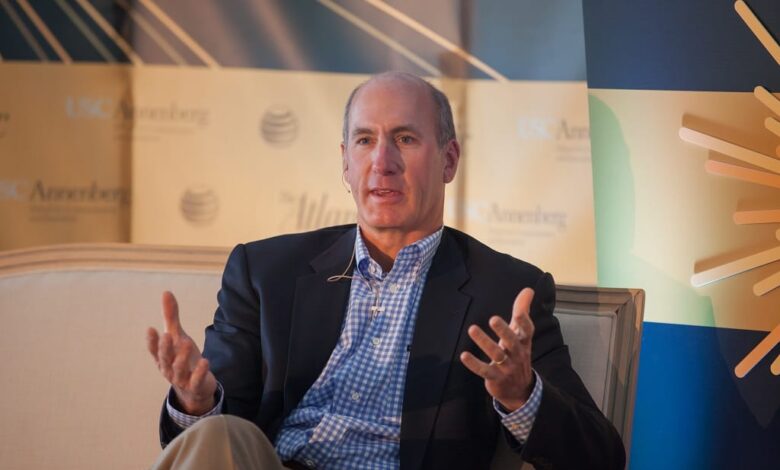
The digital age has woven the internet into the fabric of our lives. From education and work to healthcare and entertainment, reliable internet access has become an essential utility. Yet, for many Americans, particularly low-income households and those in rural areas, broadband remains an unaffordable luxury.
This digital divide not only widens the gap between the haves and have-nots but also hinders economic growth and social mobility.
John Stankey, CEO of AT&T, has ignited a debate by urging Congress to hold Big Tech companies accountable for keeping internet access affordable. Currently, the burden falls on phone and landline subscribers who contribute to the Universal Service Fund (USF). This fund subsidizes internet access for low-income households, schools, libraries, and rural healthcare providers. However, with the increasing reliance on data-driven services, Stankey argues that Big Tech, whose business models heavily depend on a robust internet infrastructure, should contribute financially.
Stankey’s proposal highlights a compelling argument. Big Tech companies, like Google, Facebook (now Meta), and Amazon, generate massive profits by leveraging the internet infrastructure built and maintained by telecom giants like AT&T. These tech giants not only rely on the physical network but also benefit from the vast amount of data that flows through it.
The current funding model, heavily reliant on phone and landline subscriber fees, is becoming increasingly unsustainable. With the decline in landline usage and the shift towards mobile data, the USF’s revenue stream is shrinking.
Additionally, the recent depletion of funds for a government broadband subsidy program serving millions of households underscores the urgency for a funding revamp.
By requiring Big Tech to contribute to the USF, the financial burden could be distributed more equitably. This could lead to a significant increase in funding, enabling the expansion of broadband access to underserved communities. This, in turn, would have a ripple effect on the economy.
Affordable internet access creates opportunities for education and job training, fostering innovation and entrepreneurship. It fuels economic development in rural areas and bridges the digital divide in education, allowing students from low-income backgrounds to compete on a level playing field. Additionally, affordable broadband can improve access to telemedicine, particularly in remote areas, and enhance overall healthcare delivery.
While Stankey’s proposal has merit, it’s not without its challenges. Defining a fair and transparent contribution model for Big Tech companies will be a complex task. Determining the exact level of contribution based on their internet usage may be difficult. Additionally, tech giants may argue that they already contribute indirectly by generating significant tax revenue.
Furthermore, some might argue that imposing additional financial burdens on Big Tech could stifle innovation and hinder the growth of the tech sector. However, this argument overlooks the potential for increased market size and economic activity driven by broader internet access.
The debate surrounding Big Tech’s contribution to internet affordability is a nuanced one. It requires striking a balance between ensuring fair funding for internet infrastructure and fostering continued innovation in the tech sector.
Open communication and collaboration between policymakers, telecom companies, and Big Tech giants are crucial to finding a solution.
Several proposals are already on the table in Congress that call for both tech companies and internet providers to contribute to the USF. Exploring different funding models, such as a tiered system based on data usage or revenue generated from internet-based activities, could be a way forward. Additionally, exploring public-private partnerships could leverage the expertise of both sectors to accelerate broadband deployment in underserved areas.
The digital divide is a complex issue with no easy solutions. However, Stankey’s proposal has sparked a conversation about shared responsibility and innovative funding models. By working together, stakeholders can ensure that the internet remains a powerful tool for education, economic growth, and social inclusion, accessible to all Americans, regardless of zip code or income level.












